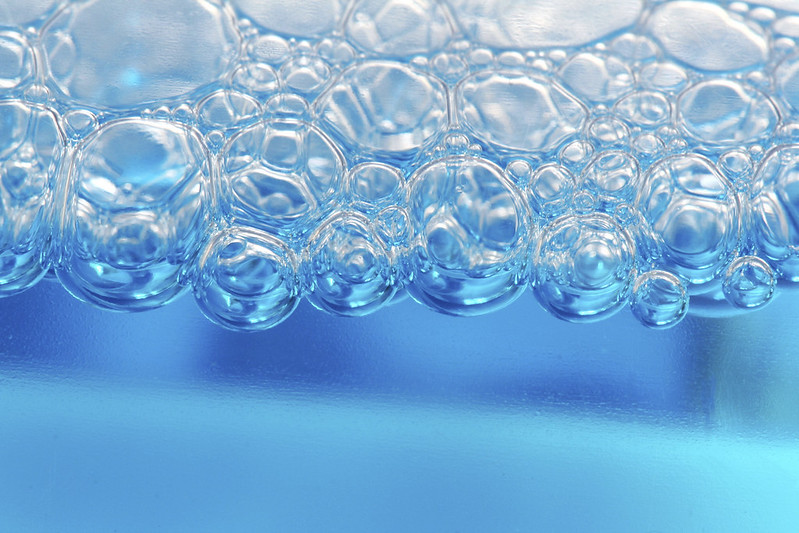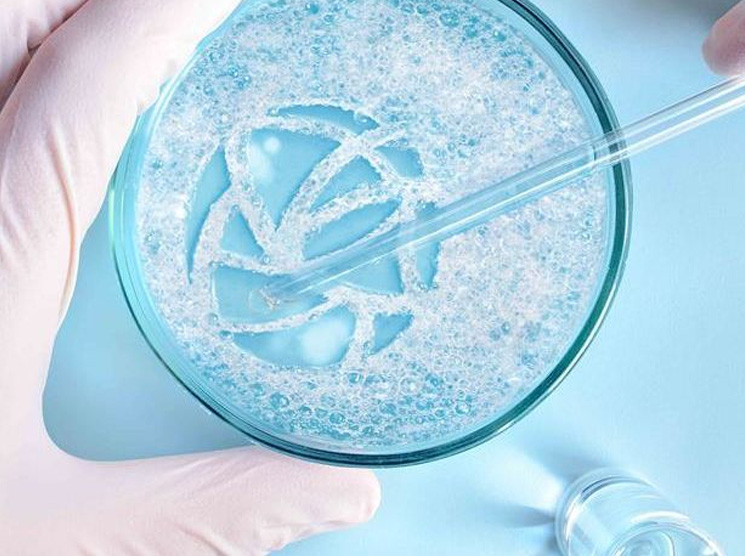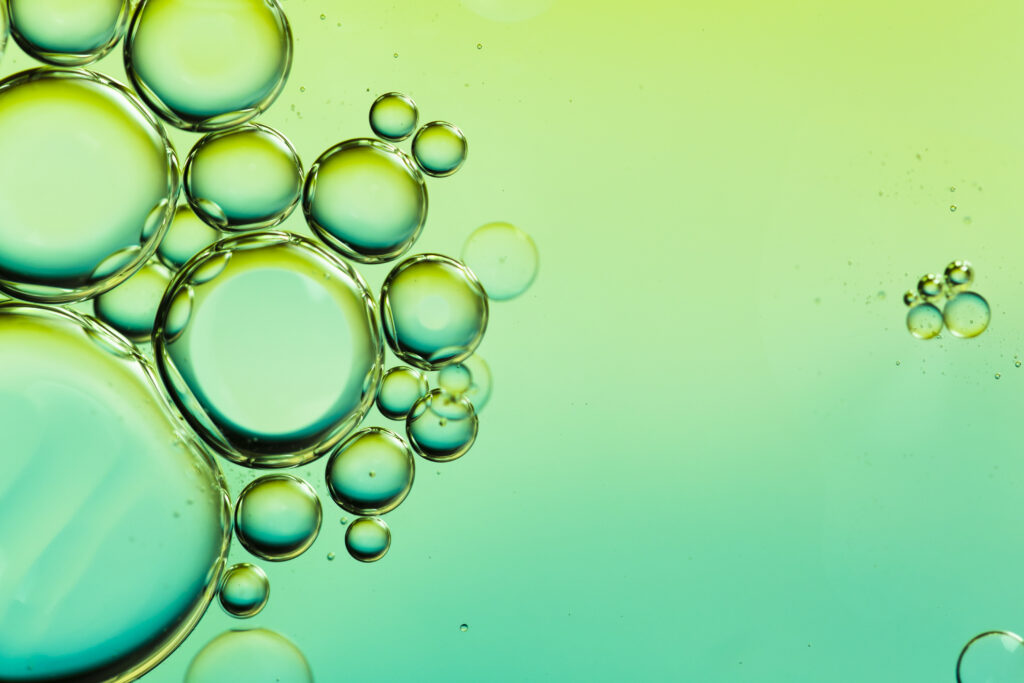Why Defoamers Are Essential in Water Treatment and Waste Management
Why Defoamers Are Essential in Water Treatment and Waste Management
Blog Article
The Function of Defoamers in Enhancing Item High Quality and Performance
Defoamers serve as essential ingredients that reduce this problem, making sure smoother manufacturing workflows while improving the practical and aesthetic attributes of the last items. The selection of the suitable defoamer can be important to attaining optimal outcomes, increasing important inquiries concerning formulation compatibility and performance metrics that merit more expedition.
Understanding Defoamers
Understanding the role of defoamers is important for preserving product high quality throughout different markets. Defoamers are chemical additives developed to avoid the formation and lower of foam in fluid systems, which can detrimentally influence procedures such as mixing, filling up, and surface tension. Frothing can bring about inefficiencies, item flaws, and jeopardized aesthetic appeal, making defoamers a vital component in making procedures.
In industrial applications, defoamers aid to improve product uniformity and stability. The effective usage of defoamers not only makes sure smoother production procedures but additionally contributes to remarkable product efficiency.
Moreover, the choice and solution of a defoamer have to align with certain application demands, such as compatibility with other active ingredients, efficiency under differing temperature and pH conditions, and possible regulatory restrictions. Inevitably, understanding defoamers' features and their relevance in various formulas is essential for maximizing manufacturing and making sure the highest high quality final result.
Kinds Of Defoamers
Defoamers can be categorized into a number of kinds based on their composition and system of activity. The primary types include silicone-based, non-silicone natural, and not natural defoamers.
Silicone-based defoamers are among the most reliable, mainly as a result of their capability to spread out promptly on the liquid surface and interfere with foam development. Their distinct chemical framework permits for exceptional security, making them ideal for high-temperature applications and atmospheres with differing pH degrees.
Non-silicone organic defoamers, typically made up of fatty acids or natural oils, are valued for their biodegradability and lower toxicity. These are commonly utilized in food and drink applications where security and ecological influence are paramount.
Inorganic defoamers, which include compounds like talc or calcium carbonate, act by raising the density of the liquid, consequently lowering foam security. They are frequently utilized in industrial processes where compatibility with various other products is not an issue.
Each sort of defoamer has distinct benefits and constraints, enabling for customized remedies depending on the specific frothing issues experienced in various applications. Comprehending these distinctions is essential for maximizing performance and attaining desired product quality.
Applications Across Industries
Countless markets take advantage of defoamers to boost item quality and functional efficiency. In the food and beverage field, defoamers are crucial in procedures such as brewing and milk production to stop foam development, which can bring about ineffectiveness and item variance. By controlling foam, suppliers can guarantee better return and a more uniform item.
In the pharmaceutical industry, defoamers play an essential role in the solution of liquid drugs, where extreme foam can impede blending and accurate dosing. Their usage assists maintain the stability of the solutions and assists in smoother production procedures.
The paint and finishings industry also relies upon defoamers to enhance the performance of items during application. By reducing foam, these ingredients guarantee a smoother coating and improve the aesthetic qualities of the last item.

Benefits of Using Defoamers
While the application of defoamers varies throughout sectors, their advantages constantly improve product quality and process efficiency. One significant benefit is the decrease of foam formation during manufacturing procedures, which can or else cause production delays and inconsistencies in item top quality. By decreasing foam, defoamers make it possible for a smoother circulation of materials, assisting in a lot more effective operations and reducing the likelihood of equipment malfunctions.
Additionally, the use of defoamers can enhance the appearance and texture of final items. In fields such as coatings, paints, and food processing, too much foam can jeopardize the visual looks and general high quality, while the proper defoamer application makes sure an uniform coating and desirable characteristics. In addition, defoamers can add to set you back savings by lowering waste throughout production and maximizing making use of basic materials (defoamers).

Picking the Right Defoamer
Picking the ideal defoamer is critical for maximizing manufacturing procedures and making sure product quality. The choice of defoamer influences not just the performance of foam control yet additionally the general performance qualities of the final item. Variables to consider consist of the sort of application, the chemistry of the solution, and the environmental problems under which the item will be made use of.
Different markets may call for certain defoamer kinds, such as silicone-based, organic, or polymeric defoamers. Comprehending the compatibility of the defoamer with the primary ingredients is vital to avoid damaging responses that might jeopardize product honesty. In addition, the defoamer's efficiency in various temperatures and pH levels need to be examined to make sure regular efficiency.
Examining the defoamer in small-scale applications can give useful understandings into its efficiency and viability. Consideration of governing compliance, particularly in food, drugs, and cosmetics, is vital in picking a defoamer. Eventually, a thorough evaluation of these variables will result in the option of a defoamer that not only manages foam successfully but likewise boosts the quality and performance of the end product.
Final Thought

To conclude, defoamers are essential additives that dramatically boost product quality and performance throughout numerous sectors. By efficiently minimizing foam development, these representatives not only boost functional efficiency yet also add to the aesthetic and useful honesty of items. The tactical choice and application of defoamers lead to cost savings, optimized source usage, and raised consumer satisfaction. In general, the significance of defoamers in industrial processes can not be overstated, as they play a vital role in achieving regular and click resources high-quality outcomes.
Foaming can lead to inefficiencies, item problems, and compromised visual charm, making defoamers an important component in making procedures.

Report this page